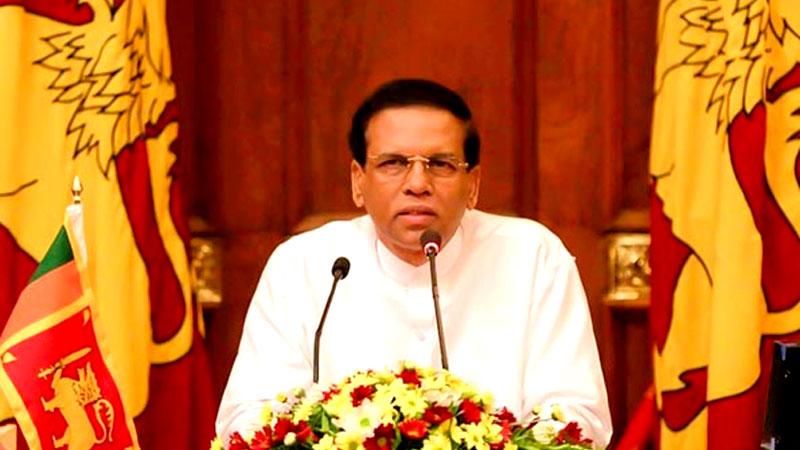
President Maithripala Sirisena is expected to make his position known on the recommendation of a hybrid court by the Consultation Task Force on Reconciliation Mechanisms, at an event commemorating his second year in office at the BMICH today, an official at the Presidential Secretariat said.
The Consultation Task Force (CTF), after concluding hearing of public views has recommended that Sri Lanka should have hybrid courts with at least one international judge to hear allegations of war crimes and crimes against humanity while stressing that all four reconciliation mechanisms - judicial mechanism, Office of Missing Persons, Truth, Justice, Reconciliation and Non-Recurrence Commission - should have credible international participation.
In each bench of the Judicial mechanism the CTF has recommended at least one international judge to address trust deficiency, while it opined the majority should constitute national judges.
The recommendations echoed the proposals in the October 2015 Human Rights Council resolution, co-sponsored by Sri Lanka.The report which came out last week, was criticised by Plantation Industries Minister Naveen Dissanayake while Justice Minister Wijeyadasa Rajapaksa said the country’s constitution did not provide for foreign judges to sit in judgment in local courts. However, Minister Rajapaksa did not say if he disproves of CTF’s recommendations.
The CTF has also recommended that to build trust and confidence among communities, the Government must expedited the return of land held by the military, release of all detainees in detention centres, repealing of PTA and immediate release of people held under PTA without charges. It has identified shortcomings in bi-lingual language proficiency throughout the state machinery as a major impediment to reconciliation.
The Task Force has recommended to criminalise, enforced disappearances, war crimes and crimes against humanity with retroactive effect, so that prosecutions can be initiated on past crimes. There is also a call for a time bound road map to establish mechanisms for transitional justice and reconciliation, with the President and Prime Minister taking the overall responsibility for implementation.
While recommending the need to re-constitute the current Witness and Victim Protection Authority as an independent body, it has proposed a monitoring arm officially mandated to report to the President, comprising representatives of affected families, civil society, human rights defenders and the international community.
The Task Force has also made it clear that LGBTQI community should have equal rights as the others. It has also recommended the reimbursement of costs for travel and accommodation for those accessing the mechanisms through a Victim Trust Fund and also special facilities for victims of sexual violence.
Given the large number of disappearances and the existing delays, the CTF has suggested judicial reforms and a special bench of the relevant court to hear the cases. It has rejected the possibility of amnesty for proven offenders of international crime.
It has also recommended that the Registration of Deaths (temporary provisions) Act be amended extending the validity of Certificate of Absence (CoA) issued to families of the disappeared from the current two years to 10 years.
